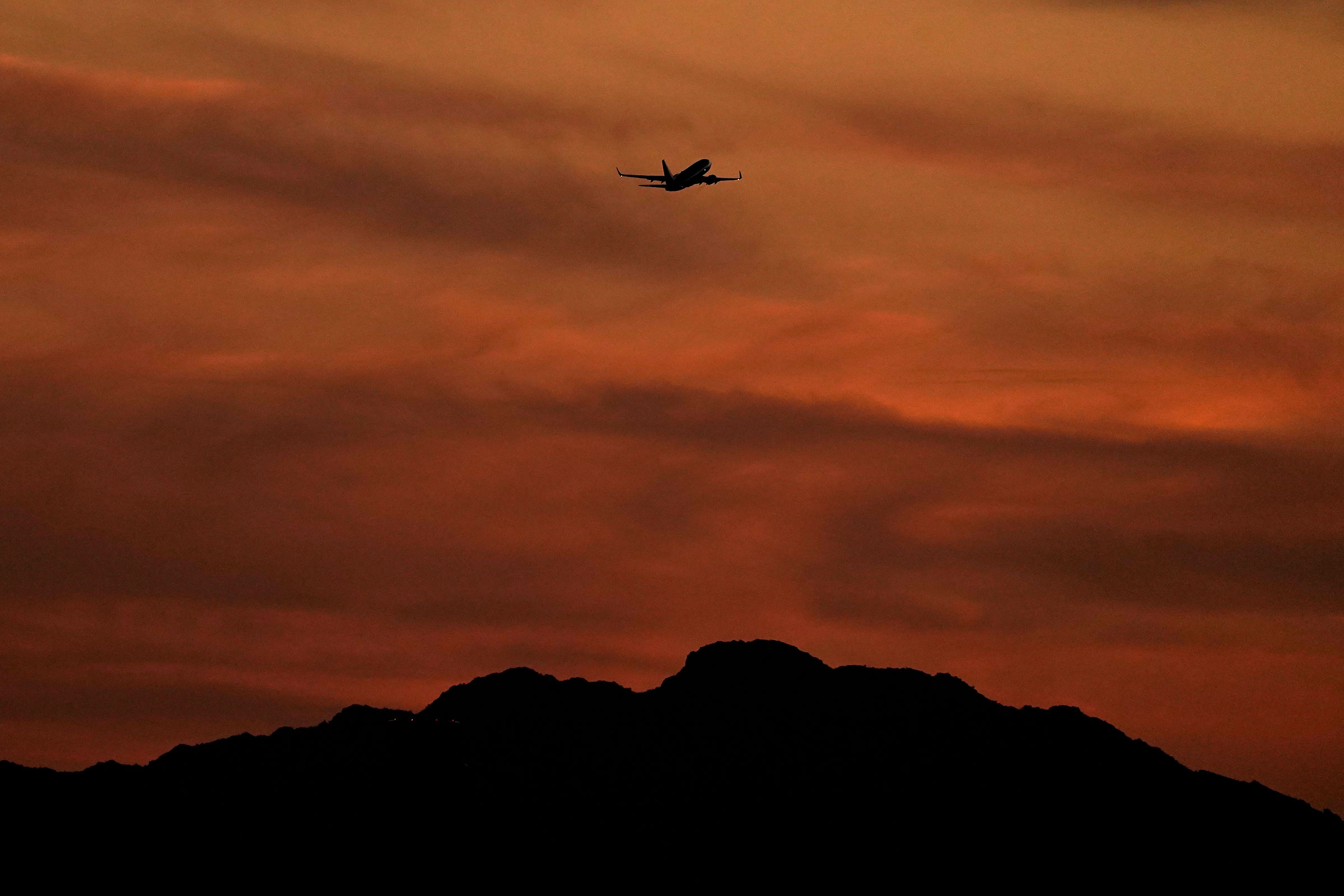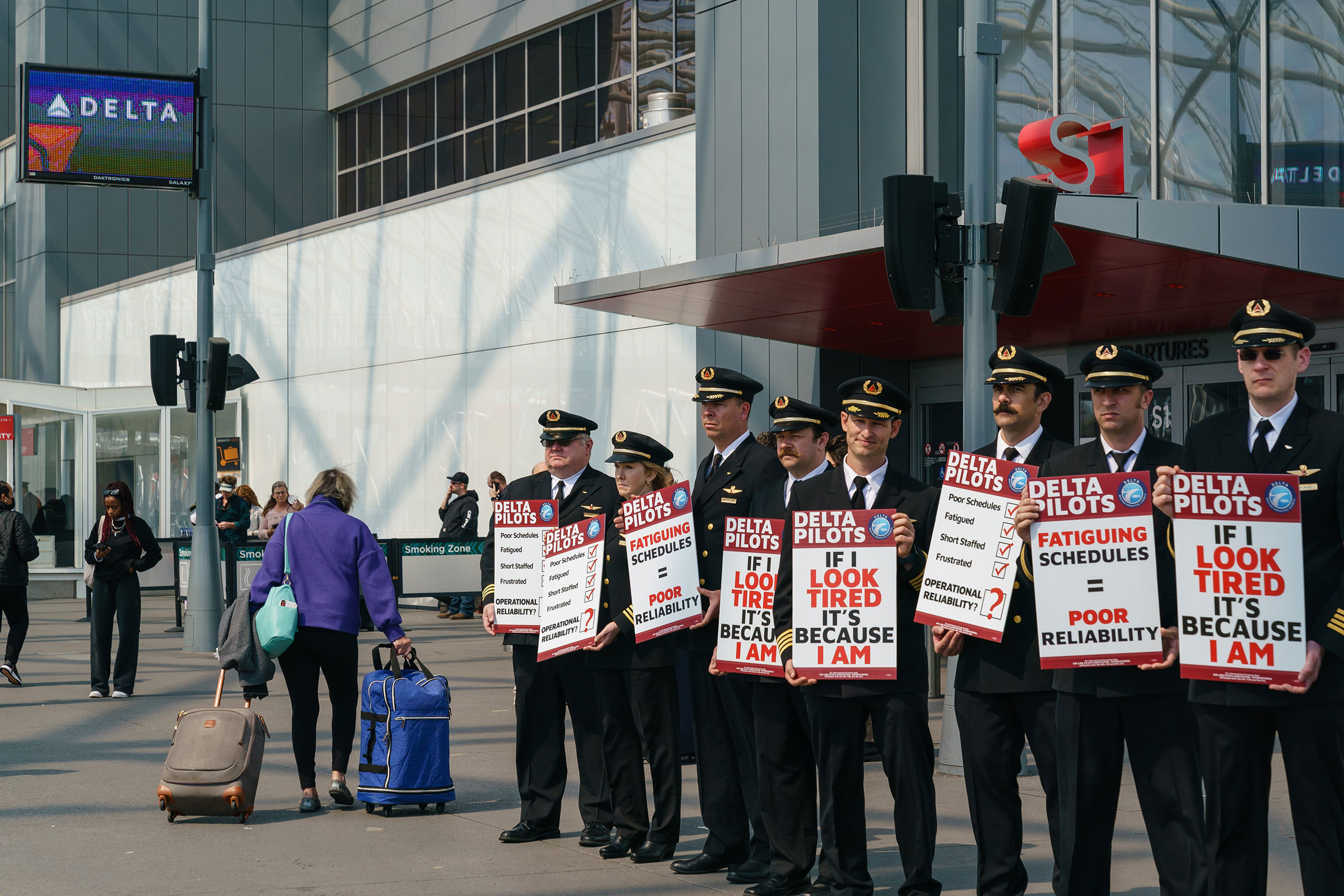
Thinking about flying this summer? You’re not alone—and you might face some delays.
With COVID-19 restrictions loosening up, more Americans are expected to travel in the next six months than at any time since the start of the pandemic. An estimated 60% of the nation is planning to take a vacation over the summer, according to the U.S. Travel Association, and Google searches related to travel have skyrocketed, reaching levels higher than in 2019.
All signs are pointing to a summer travel boom.
But the surge in pent-up demand for flights will likely have consequences. Despite record-high ticket prices around the globe, airfare inventory is low across the entire industry. Many airlines are finding their flights fully booked weeks before takeoff, and with more than 3 million people in the U.S. expected to fly this Memorial Day weekend, tickets are running around $400 on average, up 28% from the same weekend in 2019.
Here are some of the factors that are colliding to make for a messy summer of air travel.
Pilot and staff shortages
“Pilot didn’t show up,” one person wrote to American Airlines on Twitter last week after their flight was canceled right before it was supposed to take off. “I had a flight canceled today because of a staffing shortage on the ramp at the destination airport,” another wrote. “That’s a first.”
The U.S. is facing its worst pilot and staffing crisis in recent memory as some 400,000 airline workers were fired or furloughed in the last two years due to the pandemic. The void has left airlines scrambling to hire trained pilots and staff, and many have even been forced to cut flights just as passengers are ready to board.
It’s a shortfall that some airlines have tried to hide.
“Airlines are starting to open up about not having enough pilots,” says Michael Taylor, J.D. Power’s travel intelligence lead. “But you can’t have a person who flew a 737 aircraft two years ago start flying tomorrow. They have to be recertified.”
Consulting firm Oliver Wyman projects there will be a shortage of pilots that exceeds 12,000 by 2023 due to an aging pilot population and strong use of early retirements.
Alaska Airlines has been hit particularly hard by the shortage, having canceled around 50 flights per day this month. “May will continue to be choppy,” CEO Ben Minicucci said in a video last week, where he announced the carrier would hire 150 new pilots and 1,100 flight attendants.
The staffing issues are likely to continue as some pilots go on strike for better pay and labor protections. The crisis has led some airlines to reduce their schedules and come up with better incentives for pilots and flight attendants.

One regional airline, Republic Airways, proposed reducing the required hours of flight training from 1,500 to 750 before becoming a pilot. But most major airlines are reluctant to lower the barrier to entry for pilots, since it could affect aviation safety. Several airlines, including Delta, recently stopped requiring a four-year college degree for pilots, but no other major changes have been made. United Airlines told TIME that it plans to train as many as 5,000 pilots by 2030, launching its own flight school in December designed solely for applicants with little to no piloting experience. The full course takes about a year to complete.
Still, experts say flight cancellations could continue well into the summer as airlines figure out their plan to hire more pilots and staff.
Unpredictability of fuel prices
Airlines are likely to jack up ticket prices again if jet fuel becomes more expensive in the coming months, which industry experts warn could happen as Russia’s invasion of Ukraine rages on and embargoes on oil remain in place. Jet fuel currently costs around $7 per gallon on average, though the problem is particularly severe in the New England region and parts of the Northeast, where the cost of jet fuel is surging close to $9.
United Airlines CEO Scott Kirby has said if today’s jet fuel prices hold it will cost the airline $10 billion more than it spent in 2019.
“People are going to do what they want and pay for flights this summer,” Taylor says. “But they will complain about it a lot more because of the price hike.”
According to a new J.D. Power study, which Taylor worked on, that’s exactly what’s happening. Overall passenger satisfaction has declined across the board in recent months, in large part because of the increased prices and crowds.
More crowds
Over the last seven days, around 15.5 million people have gone through TSA checkpoints, up from roughly 11.8 million during the same period last year—a 31% increase. The bump in travel means airports will be crowded again, with the potential for long lines and sold out flights.
But those crowds could present an issue with COVID-19 cases once again rising across the country. Facial coverings are no longer required by U.S. airlines and transit systems, meaning travelers with compromised immune systems or children not yet eligible for COVID-19 vaccination may be at increased risk.
Airports haven’t been this busy since the start of the pandemic two years ago, when airlines saw record-low passengers and deep financial losses, says Brett Snyder, author of the Cranky Flier airline industry site. That might be a good thing for the travel industry, but not as much for customers this summer.
“Running an airline is like running a successful restaurant,” Taylor says. “Every night, every seat should be filled.”
Correction, May 31
The original version of this story misattributed the position of the Air Line Pilots Association. It did not say there is a shortage of trained pilots dating back to World War II. ALPA believes the U.S. has produced “more than enough certificated pilots to meet airline hiring demands.”
More Must-Reads from TIME
- Why Trump’s Message Worked on Latino Men
- What Trump’s Win Could Mean for Housing
- The 100 Must-Read Books of 2024
- Sleep Doctors Share the 1 Tip That’s Changed Their Lives
- Column: Let’s Bring Back Romance
- What It’s Like to Have Long COVID As a Kid
- FX’s Say Nothing Is the Must-Watch Political Thriller of 2024
- Merle Bombardieri Is Helping People Make the Baby Decision
Write to Nik Popli at nik.popli@time.com